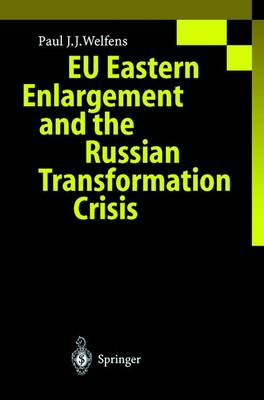Europe's economic and political landscape is changing dramatically. The demise of the socialist CMEA and the USSR has allowed eastern European economies to open up and caused Russia/the CIS to engage in a series of difficult reforms which have been supported by the G-7 and the International Monetary Fund plus the World Bank on the one hand, and, on the other hand, by the EU and the EBRD. While some of the (early) Visegrad countries apparently were rather successful in their transition attempt, systemic transition approaches in other countries - Romania and Bulgaria - and, above all, in Russia largely were a failure. Economic hardship, social unrest, political radicalization and the international spreading of criminal activities can be identified as problems from the failure of Russia's first transition attempt. This book deals - from an international perspective - with the postsocialist countries in Europe, i. e. there is a focus on eastern enlargement and on Russia on the one hand, on the other hand the topic is which international influences and effects will emerge from EU enlargement and the Russian transition.
While chapter A exclusively deals with major problems of eastern enlargement and the policy options for dealing with this difficult problem, chapter B is devoted to the Russian transformation crisis. There the analysis has a focus on Russia in its own right but also on the potential negative spillovers of a Russian transformation disaster which could occur in the late 1990s.
- ISBN10 3540658629
- ISBN13 9783540658627
- Publish Date January 1999
- Publish Status Active
- Out of Print 13 November 2014
- Publish Country DE
- Publisher Springer-Verlag Berlin and Heidelberg GmbH & Co. KG
- Imprint Springer-Verlag Berlin and Heidelberg GmbH & Co. K
- Format Hardcover
- Pages 153
- Language English
